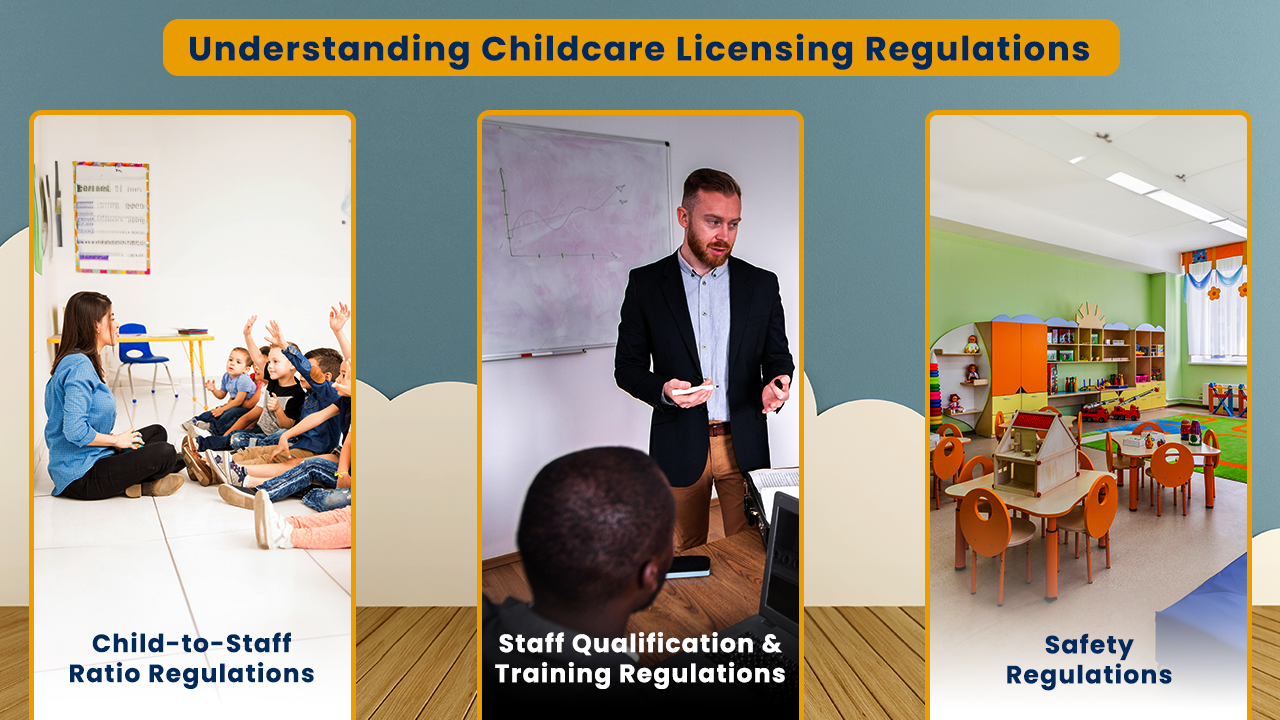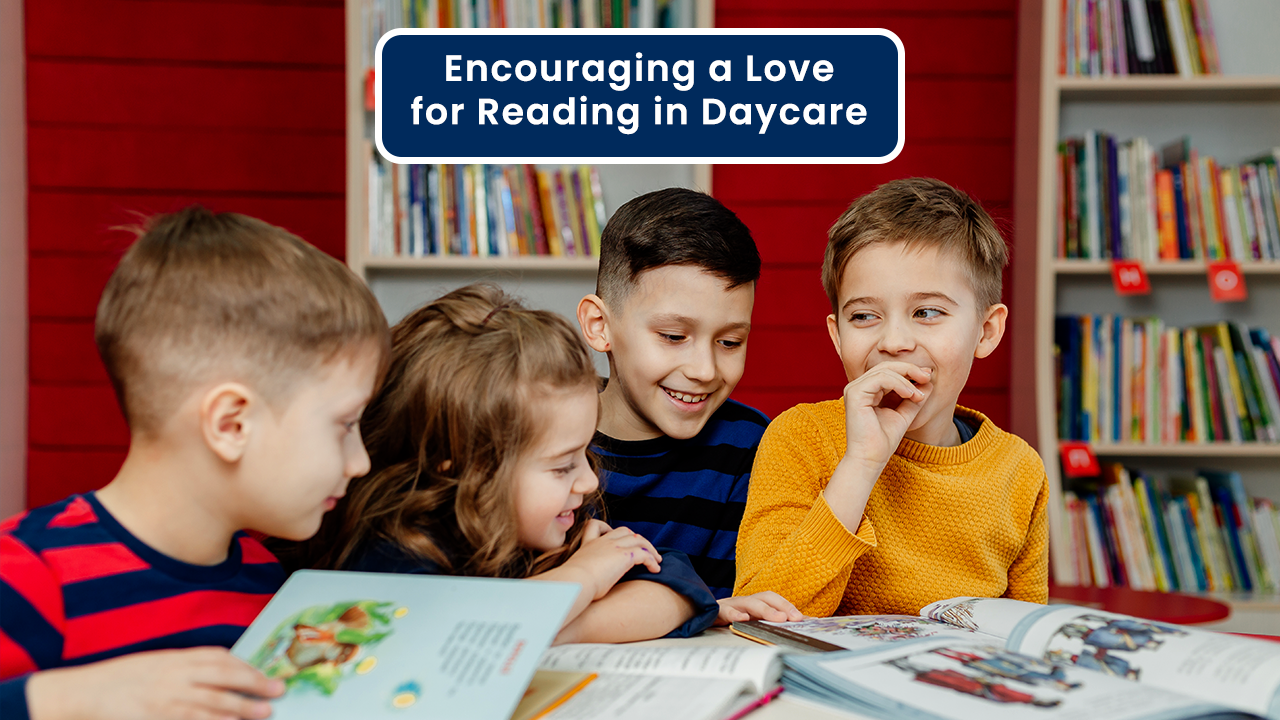
When it comes to childcare, the safety and well-being of children are of utmost importance. To ensure that childcare providers meet specific standards, governments establish licensing regulations. Childcare licensing regulations serve as a framework that sets forth guidelines for providers to follow, promoting children’s safety, health, and quality care. In this blog post, we will delve into the importance of childcare licensing regulations and how they contribute to the overall welfare of children.
What is meant by Childcare Licensing Regulations?
Childcare licensing regulations are a set of guidelines and requirements established by governments to govern the operation of childcare facilities. These regulations are put in place to ensure the safety, well-being, and quality of care of children in childcare settings. They provide a framework that childcare providers must adhere to obtain and maintain a valid operating license.
What are the types of childcare licensing regulations?
It can vary in specifics from one jurisdiction to another. However, several common types or categories of regulations are often found in childcare licensing frameworks. These include:
1- Safety Regulations:
These regulations focus on ensuring children’s physical safety and well-being in childcare facilities. They cover aspects such as building safety codes, fire safety measures, playground safety guidelines, and age-appropriate equipment standards.
2- Health and Hygiene Regulations:
These regulations establish guidelines for maintaining a clean and healthy environment within childcare facilities. They include requirements for proper nutrition, food handling and preparation, sanitation practices, hygiene routines, and protocols for illness prevention and control.
3- Staff Qualification and Training Regulations:
These regulations outline childcare providers’ and staff members’ qualifications, certifications, and training requirements. They may specify educational backgrounds, first aid and CPR certifications, and ongoing professional development expectations to ensure that staff have the necessary skills and knowledge to care for children. Read More About Daycare Employee Training Benefits here
4- Child-to-Staff Ratio Regulations:
These regulations set limits on the number of children that can be under the supervision of a single caregiver. They aim to ensure that each child receives adequate attention, care, and supervision based on their age and needs.
5- Facility and Operational Regulations:
These regulations cover various operational aspects of childcare facilities, such as licensing procedures, record-keeping requirements, staff-to-child ratios, facility inspections, and reporting obligations. They help maintain accountability and ensure that facilities are operating in compliance with the established standards.
Educational and Developmental Regulations:
Some childcare licensing regulations include guidelines related to childcare’s educational and developmental aspects. They may specify curriculum requirements, learning activities, developmental milestones, and approaches to supporting children’s cognitive, social, and emotional development.
It’s important to note that the specific types and details of childcare licensing regulations can vary between jurisdictions. It’s advisable to consult the specific regulations in your region or country to understand the requirements that apply to childcare providers in your area.
What are the benefits of Childcare licensing regulations?
1- Enhanced Child Safety:
Childcare licensing regulations prioritize the safety of children by setting specific standards for building safety, equipment, and emergency preparedness. This ensures that childcare facilities provide a secure environment that minimizes potential risks and hazards, giving parents peace of mind.
2- Improved Health and Hygiene Practices:
Licensing regulations establish nutrition, food handling, cleanliness, and illness prevention guidelines. By adhering to these standards, childcare providers promote the health and well-being of children in their care, reducing the spread of illnesses and maintaining hygienic conditions.
3- Qualified and Trained Staff:
Childcare licensing regulations often require providers to meet certain qualifications and training criteria. This ensures that the staff members have the necessary skills, knowledge, and expertise to effectively care for children, resulting in a higher quality of care and developmentally appropriate interactions.
4- Proper Child-to-Staff Ratios:
Licensing regulations specify appropriate child-to-staff ratios based on the age and needs of the children. By maintaining these ratios, childcare providers can give individual attention and personalized care to each child, fostering stronger relationships and ensuring their well-being.
5- Consistency in Standards:
Childcare licensing regulations promote consistency across different childcare facilities. They establish a baseline of quality standards that all providers must meet, ensuring that children receive consistent care regardless of the specific facility they attend.
6- Parental Confidence and Trust:
Compliance with childcare licensing regulations builds trust and confidence among parents and guardians. Knowing that a facility meets specific guidelines and rules assures them that their children are in a safe and nurturing environment.
7- Professional Development Opportunities:
Licensing regulations often require ongoing professional development for childcare staff. This promotes continuous learning, improves knowledge and skills, and enhances the overall quality of care provided to children.
8- Focus on Early Childhood Education:
Many childcare licensing regulations emphasize the importance of early childhood education. By incorporating educational components, such as curriculum guidelines and age-appropriate activities, these regulations support children’s intellectual, emotional, and social development, preparing them for future educational milestones.
How does Daycare Technology like 360Daycare help with Childcare licensing regulations?
Daycare technology platforms like 360Daycare can play a significant role in helping childcare providers comply with licensing regulations. Here are several ways in which such technology can assist with childcare licensing:
Documentation Management:
Childcare licensing often requires extensive documentation, such as enrollment forms, health records, emergency contact information, and staff credentials. Daycare technology platforms can provide a centralized digital system for managing and organizing these documents, ensuring that all necessary information is readily accessible and up to date.
Attendance Tracking:
Many licensing regulations mandate specific staff-to-child ratios and require accurate attendance records. Daycare technology can offer electronic attendance tracking, allowing providers to digitally record children’s check-in and check-out times. This helps ensure compliance with the required ratios and provides an accurate record for licensing purposes.
Staff Qualifications and Certifications:
Licensing regulations typically have specific requirements regarding the qualifications and certifications of childcare staff. Daycare technology can assist in managing and tracking staff credentials, certifications, background checks, and training records. The platform can send notifications when certifications are due for renewal, helping providers stay in compliance with licensing regulations.
Child Health and Safety:
Childcare licensing often includes rigorous health and safety standards. Daycare technology platforms can help providers maintain compliance by offering features such as medication administration tracking, illness reporting, allergy management, and emergency contact information. These systems can also facilitate creating and implementing safety policies and procedures.
Reporting and Compliance:
Childcare licensing requires providers to regularly submit various reports and documentation to regulatory agencies. Daycare technology platforms can generate automated reports that compile relevant data, including attendance records, staff qualifications, health and safety incidents, and more. These reports simplify the process of complying with licensing requirements and streamline communication with regulatory authorities.
Communication and Parent Engagement:
Licensing regulations often emphasize the importance of effective communication with parents or guardians. 360Daycare facilitates communication by providing features such as messaging systems, event calendars, newsletters, and parent portals. These tools help providers engage parents and keep them informed about their child’s activities and progress, demonstrating compliance with regulatory expectations.


